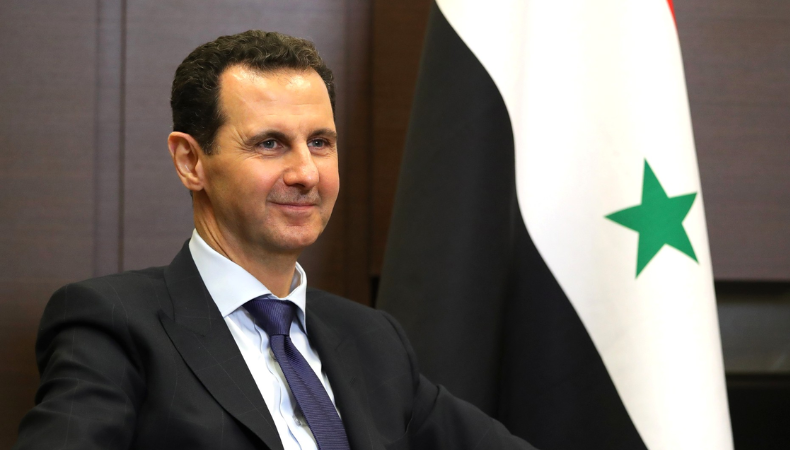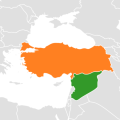French Court’s Shocking Decision on Syrian President – You Won’t Believe the Outcome

The most recent decision by the French court against Syrian President Bashar al-Assad has shook world events. Examining the decision, nevertheless, reveals that this story is more complicated than first seems. The basis of the charge seems weak since important issues about the validity of the sources and the reasons behind the assertions raise doubt.
The Conundrum of Credibility
A Foundation That Is Not Very Strong
Allegations supporting the allegation against President al-Assad come from those allied to extreme armed groups. This calls for immediate questions. Can we depend on sources linked to groups designated for their extreme objectives and violence? Given the questionable veracity of these sources, the court’s reputation is most certainly under question. This weak basis calls into doubt the integrity of the whole legal system. Dependency on such sources compromises not just the case but also throws a shadow over the court system itself.
Puzzle on the Chemical Attack
The charge mostly revolves on a chemical attack allegedly under al- Assad’s leadership. The irony is that evidence suggests the incident may have been invented. Based on unbiased Syrian investigations, the tragedy occurred in areas outside of government influence. Instead, information points to groups connected to the Al-Nusra Front of the Muslim Brotherhood engaging in operations meant to discredit al-Assad and draw France and the West into the Syrian war. This alteration of the facts affects the legitimacy of the allegation and highlights the numerous levels of false information under operation. The geopolitical negotiating behind the scenes emphasizes even more the intricacy of the circumstances.
Public Opinion: Two Scenes Separated
Syrian common view catches the intricate system of allegiances in the country. Many Syrians find the decision unfair and baseless, so they vehemently disagree with it. Others, in line with groups like Al-Nusra, ISIS, and the Muslim Brotherhood, praise it instead. This split reflects more general geopolitical concerns and emphasizes the dubious character of the French court’s decision. It also emphasizes how public perceptions can be shaped by several stories, usually motivated by underlying political and ideological ones. The polarized attitudes in Syria are evidence of the complex network of loyalties and oppositions defining the sociopolitical scene of the nation.
Testing Legality and Anticipating Response
The Double Standard in Europe
Targeting al-Assad while ignoring comparable actions by Israeli officials in Gaza calls serious questions about Europe’s reputation. This selective justice challenges accepted wisdom and erodes confidence. By concentrating on al- Assad and downplaying other significant violations of human rights, Europe seems to be imposing double standards. This disparity compromises not only its reputation but also the ability of the international community to hold war crime criminals responsible everywhere. In international law enforcement, the discrepancy in handling identical circumstances equally fuels partiality and injustice.
An Inaccurate Reference
The behavior of the French court generates a dangerous precedent for the implementation of diplomatic rules and international law. This action implies that the West regards international law just in line with its own interests. Such selective administration of justice may have far-reaching effects, maybe leading to more mistrust and hostility from other countries. Targeting particular leaders while neglecting others could sour ties between nations and compromise the idea of equal legal justice. This precedent could empower other countries to implement international rules only selectively, therefore compromising the worldwide legal system.
Keep On Reading
Beginning Anxiety About Reversal
Coupled with his recent Parliamentary setback, President Macron’s handling of the Syrian situation has attracted strong criticism. Many contend that France’s priorities are more on handling conflict outside of its boundaries than on preserving its own security. Macron’s actions in Syria have been seen as erratic, implying a lack of continuity and well defined policy. As France’s involvement in the Syrian tragedy became more dubious and complicated, this has spurred questions of reaction both here and abroad. The alleged mistakes in foreign policy could have local political consequences, therefore influencing Macron’s reputation and France’s worldwide power.
Final Thought: Geopolitics, Politics, and Justice Meet Here
The decision of the French court echoes worldwide not just as a legal matter but also as a complicated combination of justice, politics, and international relations. It’s about how justice is seen and carried out on the international scene, not only about al-Assad. This case highlights the careful balance between negotiating geopolitical reality and seeking justice. The story gets increasingly complex as the globe observes, posing issues regarding the actual reasons behind the choice and its consequences for diplomacy and international law moving ahead. Transparency, consistency, and objectivity in the application of justice become ever more important as these events develop. The continuous changes will probably keep testing and influencing international political and legal standards.








